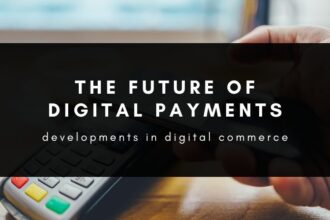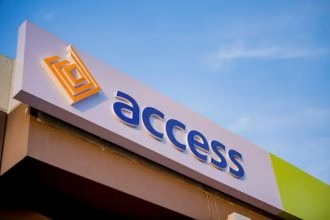Nigeria’s banking and telecom sectors have been in a long-running dispute over an enormous USSD debt. As of January, banks owed telecom operators N180 billion for USSD services. Now, thanks to recent payments, banks have cleared 95 percent of this debt, leaving just a few laggards. This marks a major policy win and paves the way for new billing rules that could change how Nigerians pay for USSD transactions.
In this post, we break down what happened, why the USSD debt built up, the impact on mobile users, and what comes next in Nigeria’s push for financial transparency and improved telecom services.
What Is This USSD Debt?
USSD is the short code system you use to check your bank balance, transfer money, or buy airtime. It is crucial for financial inclusion, especially where internet access is limited. But banks were supposed to pay telecom companies each time a customer used USSD.
Over five years, banks accumulated an USSD debt of roughly N180 billion. The deadlock threatened telecoms with losses and spur-of-the-moment service cuts.
Why Did It Happen?
The USSD debt problem stemmed from unclear billing systems and a lack of enforcement. Initially, banks paid telecoms, but as costs rose, they delayed payments. Telecom operators responded by withdrawing services from some banks and warning of bigger losses.
Regulators like NCC and CBN stepped in with a price cap (N6.98 per session) and temporary disconnection threats. Still, the outstanding USSD debt kept growing, hitting N160 billion by late 2024.
What Has Changed? 95% of USSD Debt Is Paid
In June 2025, ALTON confirmed that Nigerian banks have paid down 95 percent of the N180 billion USSD debt. Only three banks remain in debt, and they have negotiated installment payments.
This clean-up was a condition for rolling out a new end-user billing system, where USSD charges come directly from users’ airtime rather than bank accounts.
How Will End-User Billing Work?
With the USSD debt mostly cleared, regulators and telecom operators are rolling out a new system:
- Customers will get a prompt that asks permission before airtime is deducted.
- A USSD session (120 seconds) costs N6.98, same as before but now comes from airtime.
- If telecom network fails, customers aren’t billed. If they authorize but banks fail, telecoms still get paid.
- Banks can still use corporate billing if they clear their debts but must follow regulations.
What It Means for Customers
For Nigerian mobile users, the change means:
- No more surprise bank account deductions.
- Full transparency with airtime prompts.
- Consistent charges per session.
MTN confirms customers will continue to pay N6.98 per session, but via airtime now.
If customers are billed twice (airtime and bank), they are advised to contact the bank—it should not happen under the new model.
Why This Shift Matters
- Clears the huge USSD debt, reducing tension between banks and telecoms
- Makes billing transparent and simple, users see charges instantly
- Helps maintain USSD reliability, especially important in rural areas
- Prepares Nigeria’s payment systems for more digital innovation
Also Read: NCC’s New USSD Billing Model & Everything You Need to Know
How Nigeria Got Here
Here’s a quick timeline tracing the USSD debt saga:
- 2019: Dispute begins with banks owing N17 billion for USSD. Regulators impose corporate billing
- 2021: Debt hits N42 billion, climb amid COVID. NCC and CBN set N6.98 per session
- Late 2024: Debt reaches N160 billion. Regulators threaten disconnection
- June 2025: Banks pay 95 percent, leaving three in installment plans. End-user billing begins
What Comes Next?
Now that the USSD debt is nearly cleared, focus shifts to ensuring a smooth end-user billing roll-out:
- Telecoms will roll out the airtime billing system gradually, starting with one bank
- Regulator oversight will track uptake, errors, or double billing
- Remaining banking institutions must clear debts or shift to corporate billing
- Banks and telcos need error-reporting systems and customer support ready
Risks and Concerns
- Airtime deduction may be harder for low-income users. But telecoms believe transparency offsets this risk
- Banks still hold sway, if they don’t migrate, corporate billing continues
- Customer awareness needs to improve, with clear prompts and support channels ready
Also Read: The Future of Digital Payments in Nigeria. Positive & Powerful in 2025?
Why This Is a Win for Financial Inclusion
USSD is vital in Nigeria. Over 80 percent of mobile users can access it, but many can’t afford data or smartphones.
A stable, transparent billing model supports digital banking access for millions, including those in rural areas. The near-elimination of USSD debt shows stakeholders are serious about closing old gaps and creating a smooth future for digital payments.
Nigeria’s banks have taken a big step by clearing 95 percent of the USSD debt. What once risked telecom shutdowns is now under control. With the new end-user billing model live, customers get clearer billing and telecoms get paid promptly.
The battle over authority and money is almost over. Now, focus is on implementation, user clarity, and improved digital banking access.
Nigerians should expect smoother service, transparent charges, and no more double billing. This is how you turn conflict into a clear path forward.






